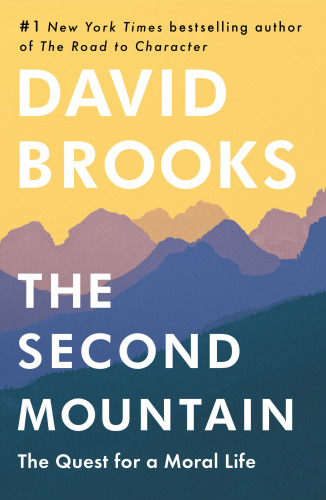
The Second Mountain
The Quest for a Moral Life
کتاب های مرتبط
- اطلاعات
- نقد و بررسی
- دیدگاه کاربران
نقد و بررسی

April 1, 2019
The popular New York Times columnist propels himself through another heartfelt, earnest pilgrimage toward self-awakening and commitment. Deeply concerned about the breakdown in civil discourse and the terrible compromises that successful people--especially politicians--make in their careers, Brooks (The Road to Character, 2015, etc.) elucidates another way to live, what he calls the Second Mountain. The first mountain is what people of his well-educated, affluent milieu climb to gain good jobs, recognition, money, and success--doing what our society expects us to do. While some people reach the top, they might find it "unsatisfying." Others fall away and fail, for whatever reason, and spend time suffering in the valley, which is where Brooks finds the truly interesting stories. "The people who have been made larger by suffering are brave enough to let parts of their old self die," he writes. "Down in the valley, their motivations changed. They've gone from self-centered to other-centered." Brooks uses innumerable examples of people who have suffered in this profoundly disappointing wilderness and been made stronger in their sense of purpose. These include historical figures like Abraham Lincoln and Leo Tolstoy as well as the author's friends and acquaintances. Indeed, Brooks uses his own experience of being broken by the dissolution of his marriage of 27 years and his embrace of Christianity (he was raised in a Jewish household) and eventual remarriage to a younger woman who acted as his research assistant and spiritual guide. Essentially, he sets out to create a blueprint for moral transformation by eschewing the hyperindividualism we are taught to champion as children and which, he concludes via social data, leads only to loneliness, distrust of institutions, loss of purpose, and tribalism. Instead, we must open ourselves to family, community, and religious commitments. Brooks is a heart-on-his-sleeve writer, and his language is not terribly profound, but his message is accessible and inclusive. A thoughtful work that offers an uplifting message to those struggling in the wilderness of career and existential challenge.
COPYRIGHT(2019) Kirkus Reviews, ALL RIGHTS RESERVED.

April 8, 2019
In this ardent follow-up to The Road to Character, New York Times columnist Brooks explores his thinking about factors that form a moral life. He confesses that he wishes to “in part compensate for the limitations of” his previous book, as he no longer believes that character formation is based entirely on individual achievements. Instead, Brooks now professes that one builds character by giving oneself away to a community—or to a cause out of love—a premise that manifests itself in his theory of “the two mountains.” For Brooks, the summit of the first mountain is traditional success based on one’s achievements. Along the way, one can expect failure or setbacks. Through the ensuing stage of suffering (the valley), one gets the strength and life experience to commit to climbing the second mountain, where Brooks believes true joy can be found. Enjoying one’s work, getting married, studying philosophy or religion, and establishing community helps to form the path between the mountains, Brooks writes. As he teases apart his metaphor, Brooks relates his own experiences: a newfound love after divorce and a religious awakening that has brought him to the cusp of Christianity from Judaism. While some readers will find his revelations obvious, Brooks’s melding of personal responsibility with respect for community will have broad appeal.

November 15, 2018
New York Times op-ed columnist Brooks (e.g., the New York Times best-selling The Road to Character) argues that over our lives most of us commit to a vocation, a set of beliefs, a spouse and family, and a community. Blending them makes for a life well lived, and here he uses life stories (a Holocaust survivor, an African educator) to show how to make the best of each.
Copyright 2018 Library Journal, LLC Used with permission.

























دیدگاه کاربران